DISCOVER SOUTH SUDAN
Uncovering South Sudans thriving Tourism scene
Join us as we navigate through the vibrant tapestry of South Sudan’s thriving tourism scene, where wilderness gives way to wonder, and where the spirit of adventure finds solace in the untamed beauty that awaits at every turn.
Nestled in the heart of Africa, South Sudan emerges as a hidden gem, brimming with untamed wilderness and a vibrant cultural tapestry. As the world’s youngest nation, South Sudan has embarked on a remarkable journey of transformation, shedding its tumultuous past and embracing the potential of its untouched landscapes. With a fusion of rich history, diverse cultures, and breathtaking natural wonders, this land holds the promise of an extraordinary tourism experience. This article explores the transformation of South Sudan’s wilderness into a captivating tourist destination, highlighting its thriving tourism scene.
In this captivating exploration, we delve into South Sudan’s tourism scene, unveiling a land of incredible beauty and cultural heritage. From the historical depths of ancient kingdoms to the lush wetlands teeming with wildlife, South Sudan beckons travelers to discover its hidden wonders. We unravel the mysteries of its vibrant cultures, engage in heart-stirring adventures, and witness the remarkable strides taken in infrastructure development. Join us as we navigate through the vibrant tapestry of South Sudan’s thriving tourism scene, where wilderness gives way to wonder, and where the spirit of adventure finds solace in the untamed beauty that awaits at every turn. Together, we will uncover the secrets that make South Sudan a destination worthy of exploration, where the echoes of the past harmonize with the pulse of a nation on the rise.
Historical and Cultural Background
Tracing the rich history and diverse cultures of South Sudan
South Sudan’s history is an intricate tapestry woven with tales of ancient kingdoms, colonial influences, and a struggle for independence. From the mighty kingdoms of Kush and Nubia to the arrival of Arab traders and European explorers, the land has been shaped by a multitude of cultures and civilizations.
South Sudan is home to over 60 distinct ethnic groups, each with its own unique customs, languages, and traditions. From the Dinka‘s cattle herding traditions to the Acholi’s vibrant folklore, the country’s cultural landscape is a mosaic of diversity. Rich oral traditions, colorful attire, and intricate beadwork reflect the depth of heritage passed down through generations.

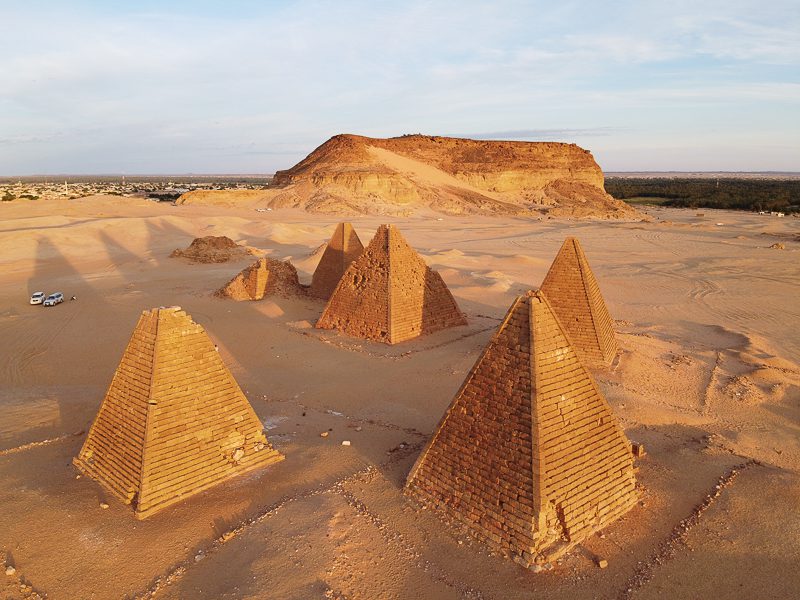
The impact of historical events on the tourism industry
Historical events have played a significant role in shaping South Sudan’s tourism industry. Decades of conflict and political instability posed challenges to its development. However, since gaining independence in 2011, the nation has been on a transformative journey towards peace and stability. The cessation of hostilities has opened the doors to a thriving tourism scene. Travelers now have the opportunity to explore historical sites such as the ancient city of Kerma and the pyramids of Jebel Barkal, tracing the footsteps of ancient civilizations.
The resilience of South Sudanese people, combined with government initiatives and investment in infrastructure, has laid the foundation for the growth of the tourism sector. Today, South Sudan’s historical and cultural heritage acts as a magnet, drawing inquisitive travelers seeking authentic experiences. By embracing its rich past and diverse cultures, South Sudan is carving a unique niche in the global tourism landscape, offering visitors a chance to immerse themselves in the living history of this remarkable nation.
Natural Wonders and Breathtaking Landscapes
South Sudan's diverse ecosystems and natural attractions
South Sudan is a land of awe-inspiring natural beauty, where diverse ecosystems converge to create a paradise for nature enthusiasts. From vast savannahs to lush wetlands and towering mountain ranges, the country boasts an array of breathtaking landscapes waiting to be explored.
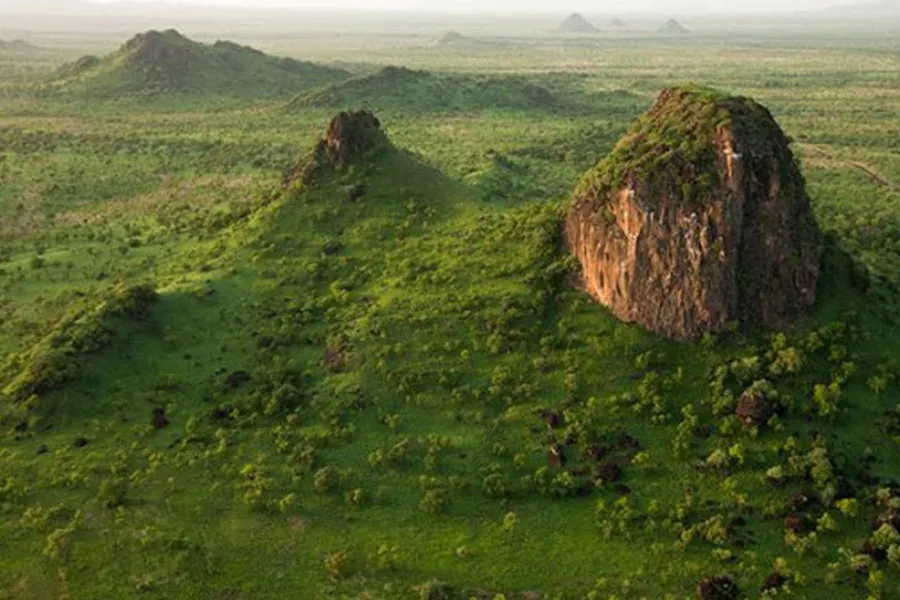
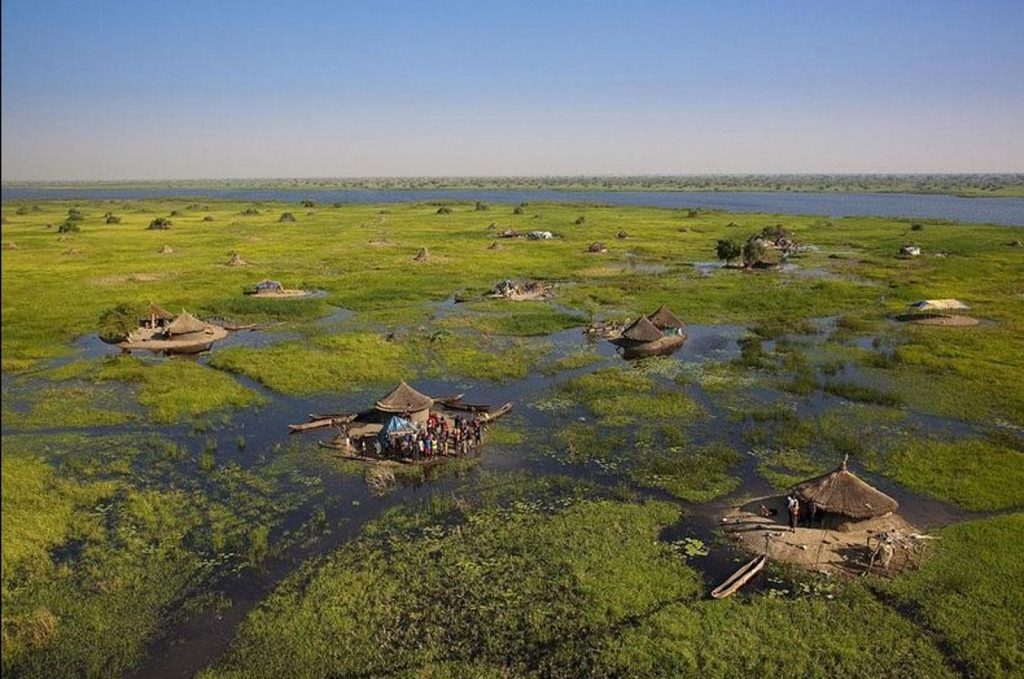
Iconic landmarks such as the Sudd wetlands and the Imatong Mountains
One of South Sudan’s iconic natural landmarks is the Sudd wetlands, a sprawling expanse of marshes and lagoons that stretches as far as the eye can see. This unique ecosystem teems with abundant wildlife, including elephants, hippos, and countless bird species, making it a haven for birdwatchers and nature lovers.
Another gem is the Imatong Mountains, standing tall as a majestic backdrop. These mountains offer panoramic vistas, rugged hiking trails, and opportunities to encounter rare flora and fauna found nowhere else.
Exploring unique wildlife and protected areas, like Boma National Park
South Sudan is home to a diverse array of wildlife, many of which can be found within its protected areas. Boma National Park, situated in the eastern part of the country, shelters a rich biodiversity. It is a sanctuary for endangered species such as the white-eared kob, tiang antelope, and Nile lechwe, offering incredible wildlife viewing experiences. Additionally, the country’s other protected areas, including Bandingilo National Park and Southern National Park, provide further opportunities to witness the wonders of South Sudan’s wildlife, as well as engage in activities like game drives and guided nature walks.
South Sudan’s natural wonders and landscapes showcase the sheer grandeur of the African continent. By embracing sustainable tourism practices, the country aims to preserve its pristine environments and share its ecological treasures with visitors. Embarking on an adventure through South Sudan’s natural wonders is a testament to the transformative power of nature and an invitation to uncover the unspoiled beauty of this emerging tourist destination.
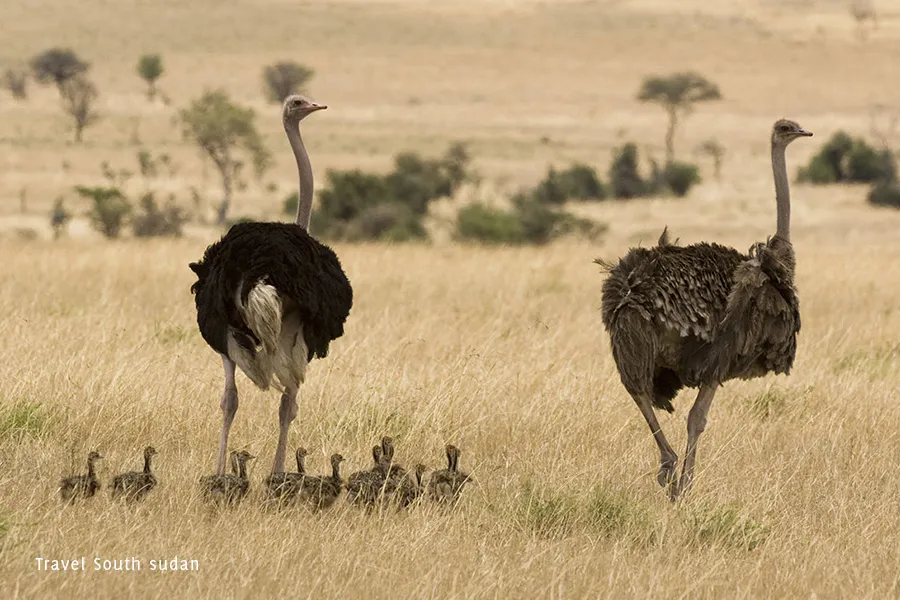
Cultural Heritage and Traditions
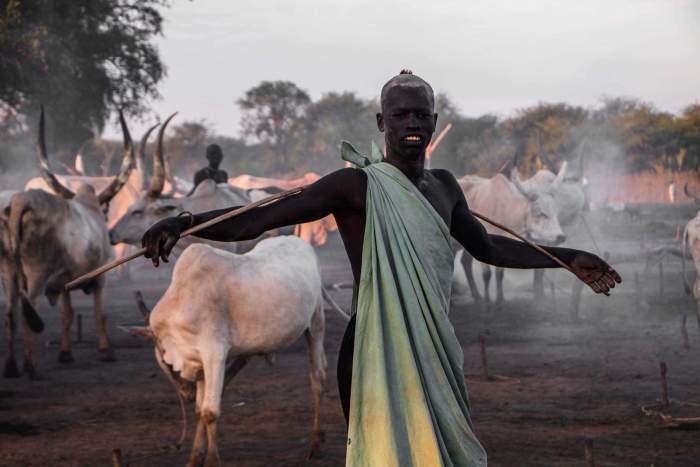
Showcasing the vibrant cultural heritage of South Sudan's ethnic groups
South Sudan is a melting pot of diverse ethnic groups, each with its distinct customs, traditions, and way of life. Exploring the cultural heritage of these communities offers a fascinating glimpse into the rich tapestry of South Sudanese society.
From the proud Dinka and Nuer tribes to the Acholi and Bari communities, South Sudan’s ethnic groups carry forward age-old traditions that have survived the test of time. Their rituals, social structures, and belief systems reflect a deep connection to the land and a reverence for ancestral roots.
Discussing traditional ceremonies, music, and dance forms
Traditional ceremonies form an integral part of South Sudanese culture, serving as important milestones in communal life. These events, such as initiation rites, harvest celebrations, and marriage ceremonies, are marked by vibrant displays of music, dance, and colorful attire. The rhythmic beats of drums, the melodic strains of indigenous instruments, and the energetic movements of dancers create a captivating spectacle, inviting outsiders to partake in the joyous festivities.

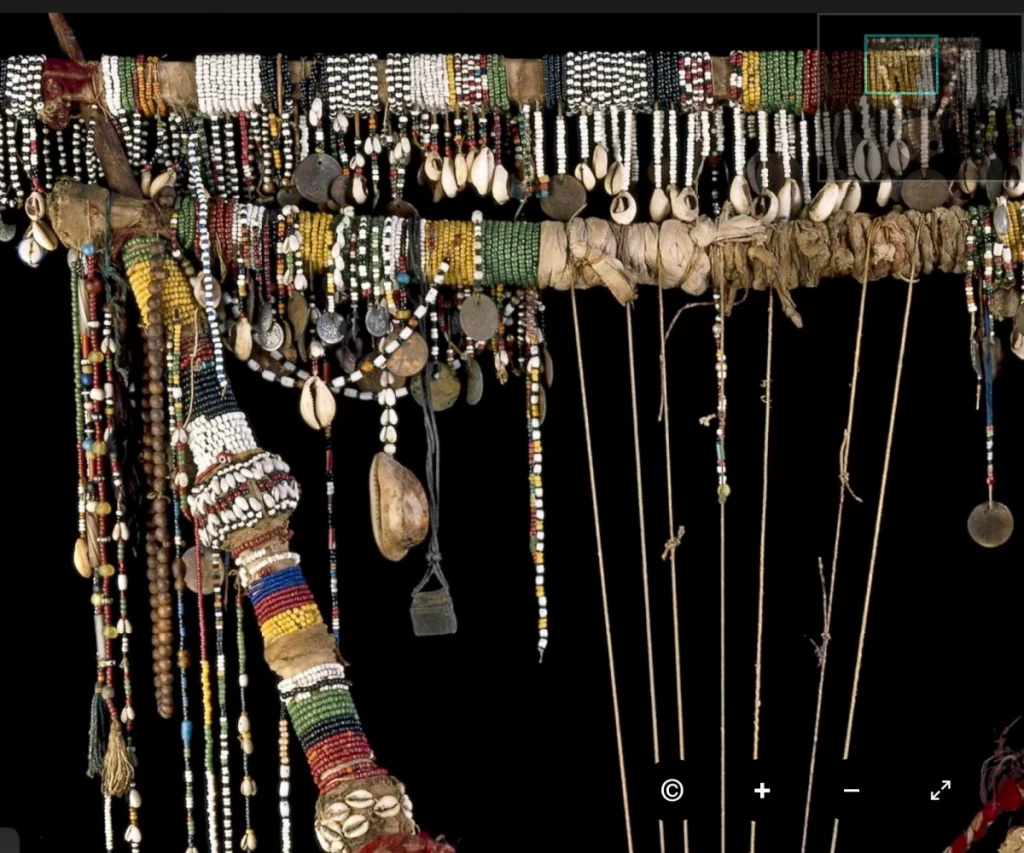
Examining the significance of local handicrafts and artwork
South Sudanese artisans possess remarkable skills in creating exquisite handicrafts and artwork that embody their cultural identity. Intricately woven baskets, vibrant beadwork, and skillfully carved wooden sculptures are just a few examples of the craftsmanship found in the region. These handmade treasures not only showcase the artistic talents of the South Sudanese people but also serve as important sources of income and cultural preservation.
Local markets provide opportunities to engage with artisans, learn about their techniques, and acquire unique souvenirs that carry the essence of South Sudan’s cultural heritage. By immersing themselves in South Sudan’s cultural heritage and traditions, travelers gain a deeper understanding of the country’s identity and the values cherished by its communities. This celebration of cultural diversity fosters mutual respect and appreciation, fostering meaningful connections that transcend borders and enriching the overall tourism experience.
Tourism Infrastructure Development
Government initiatives to promote tourism and infrastructure improvements
The South Sudanese government recognizes the immense potential of tourism and has implemented initiatives to foster its growth. Efforts include promoting South Sudan as a tourist destination through marketing campaigns, participating in international travel expos, and collaborating with industry stakeholders.
Infrastructure improvements play a crucial role in attracting and accommodating visitors. The government has focused on enhancing transportation networks, upgrading airports, and improving road connectivity to key tourist sites. These developments not only facilitate easier access for travelers but also contribute to the overall growth and sustainability of the tourism industry.
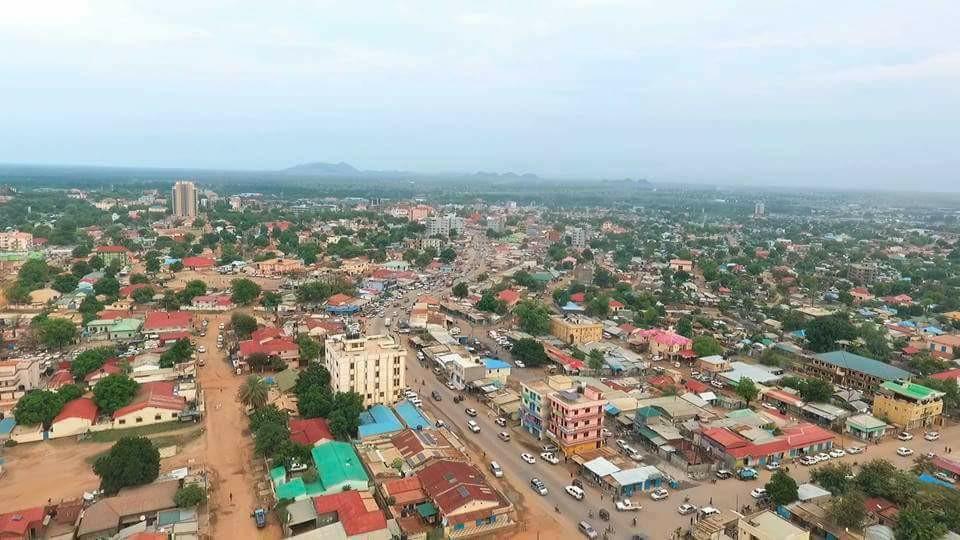
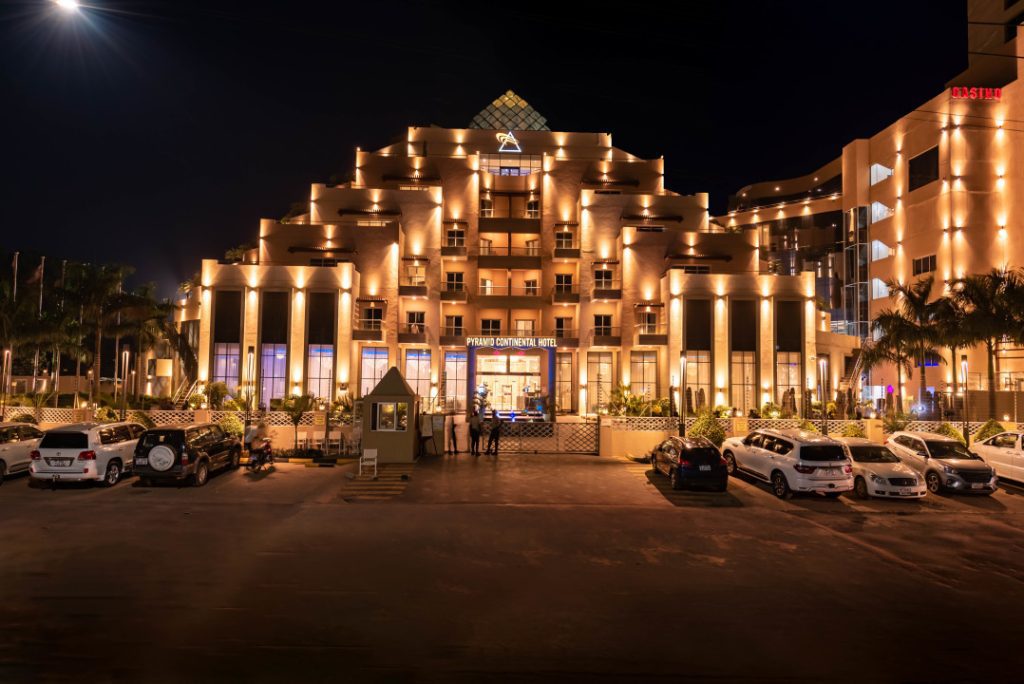
Investments in accommodation, transportation, and tourist facilities
Investments in accommodation options have expanded to cater to diverse traveler preferences. From luxury hotels in major cities to eco-lodges nestled in natural reserves, visitors can find a range of comfortable and authentic accommodations. Transportation infrastructure has also undergone significant improvements. Domestic flights connect different regions, making it easier to explore remote areas.
Additionally, road networks are being developed and upgraded, enabling smoother travel experiences. To enhance the overall visitor experience, tourist facilities such as visitor centers, information booths, and recreational facilities have been established at popular tourist sites. These amenities ensure that travelers have access to necessary services and information, enriching their journey through South Sudan.
Exploring the growth of hospitality services and tour operators in the region
The growth of South Sudan’s tourism scene has spurred the development of hospitality services and tour operators. Hotels and resorts are staffed with trained professionals who provide warm hospitality and personalized services. Furthermore, local tour operators offer specialized itineraries, knowledgeable guides, and immersive experiences that showcase the best of South Sudan’s cultural and natural heritage. These dynamic enterprises contribute to the economic growth of local communities while ensuring that tourists receive exceptional services tailored to their preferences.
With their expertise and commitment, they play a vital role in promoting responsible and sustainable tourism practices. The combination of government initiatives, infrastructure improvements, and the emergence of a robust hospitality and tour operator sector is shaping South Sudan into an attractive and well-equipped destination for travelers. As the tourism industry continues to flourish, visitors can expect seamless travel experiences and a wide range of options that cater to their needs and interests.
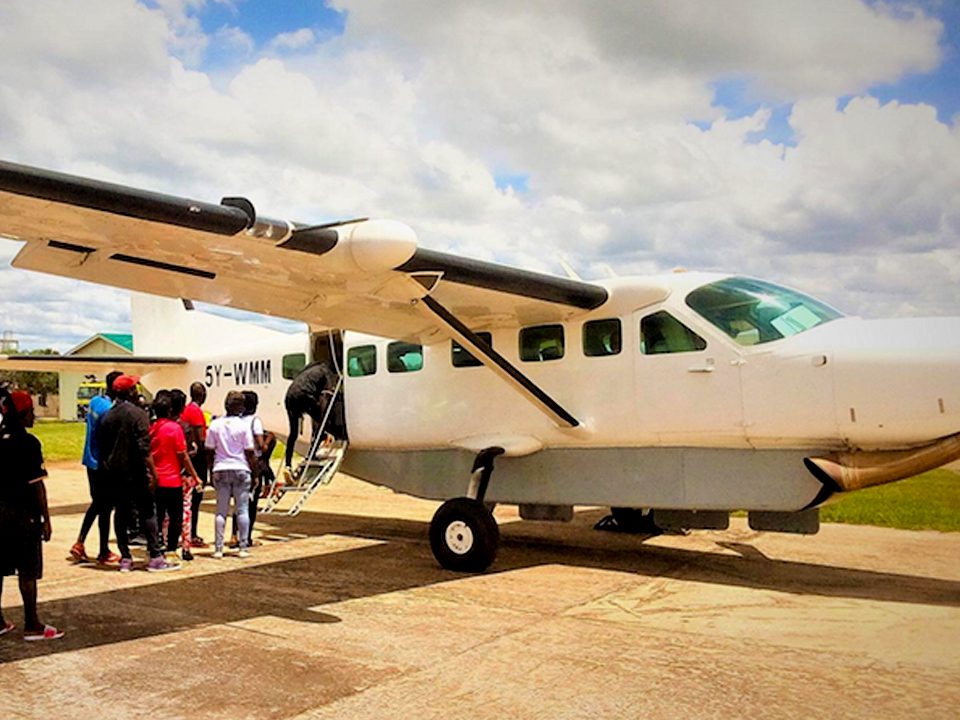
Engaging Tourist Activities and Experiences
Adventure tourism opportunities: hiking, wildlife safaris, and bird watching
South Sudan’s thriving tourism scene offers an array of thrilling adventure activities for the intrepid traveler. Hiking enthusiasts can explore the rugged beauty of the Imatong Mountains, embarking on challenging trails that reward with breathtaking vistas and encounters with unique flora and fauna. Wildlife safaris present an opportunity to witness majestic creatures in their natural habitats, including elephants, giraffes, and various antelope species.
Birdwatching enthusiasts will be enthralled by South Sudan’s status as a haven for avian biodiversity. With over 1000 bird species, including the endemic Fox’s Weaver and White-winged Collared Dove, bird watching excursions provide an immersive experience into the world of feathered wonders.

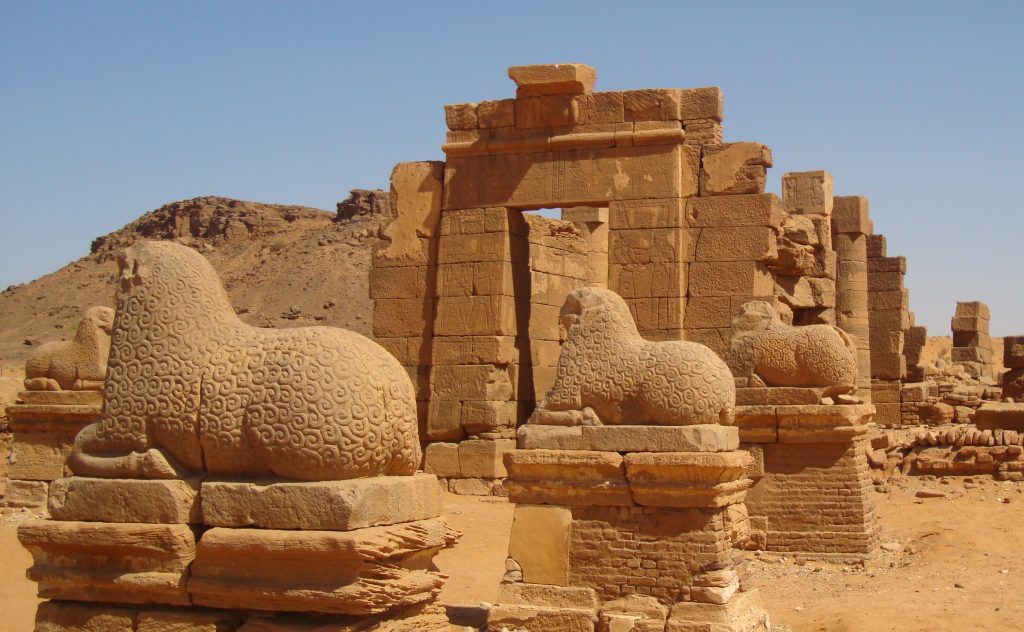
Exploring historical sites and archaeological treasures
South Sudan’s rich history comes alive through its historical sites and archaeological treasures. Explorers can wander through the ancient ruins of the Kushite city of Kerma, once a thriving metropolis along the Nile. The UNESCO World Heritage site of Jebel Barkal reveals towering pyramids and temples that harken back to the glory days of the Nubian Kingdoms.
Engaging with local communities through cultural tours and homestays
Immersing oneself in the vibrant cultures of South Sudan is an enriching experience. Cultural tours provide an opportunity to witness traditional ceremonies, music, and dance performances, gaining insight into the customs and traditions of different ethnic groups. Travelers can also participate in community-based initiatives, such as homestays, where they live with local families and learn about their daily routines and traditions firsthand.
These interactions not only foster cultural exchange but also contribute directly to the socio-economic development of local communities. By engaging with the local population, visitors can forge meaningful connections, gain a deeper understanding of South Sudan’s heritage, and create lasting memories.
South Sudan’s thriving tourism scene offers a plethora of engaging activities and experiences for every kind of traveler. From adrenaline-pumping adventures in its untamed wilderness to delving into the depths of its historical and archaeological wonders, and immersing oneself in the rich tapestry of its diverse cultures, South Sudan beckons explorers with a world of discovery and unforgettable moments.
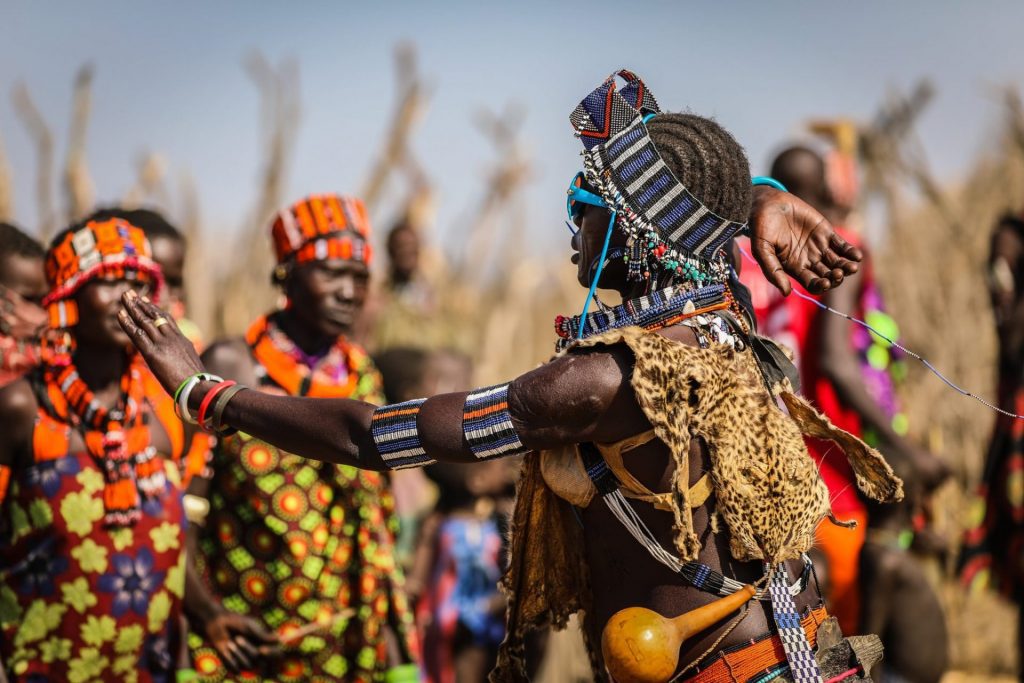
Responsible Tourism and Sustainability Efforts
- Highlighting sustainable tourism practices in South Sudan
South Sudan is committed to promoting responsible tourism practices, ensuring that the growth of the tourism industry goes hand in hand with environmental conservation and community development. Sustainable tourism initiatives focus on minimizing the negative impact on the environment and maximizing the benefits for local communities.
- Community-based initiatives and conservation efforts
Community-based initiatives play a vital role in South Sudan’s sustainable tourism landscape. Local communities are actively involved in tourism development, offering cultural tours, homestays, and artisanal experiences. These initiatives provide economic opportunities for community members and foster a sense of pride in preserving cultural heritage.
Conservation efforts are also integral to South Sudan’s sustainable tourism agenda. The country has established protected areas, such as Boma National Park and Bandingilo National Park, to safeguard its unique biodiversity. Collaborative programs with local communities promote wildlife conservation, anti-poaching measures, and habitat restoration.
- Promoting ethical wildlife tourism and environmental preservation
South Sudan prioritizes ethical wildlife tourism, ensuring that interactions with wildlife are conducted responsibly and with respect for animal welfare. Wildlife safaris and guided tours adhere to strict guidelines to minimize disturbance to the natural habitats and behavior of animals. Visitors have the opportunity to observe wildlife in their natural environment, contributing to conservation efforts by supporting responsible wildlife tourism practices.
Environmental preservation is paramount in South Sudan. Efforts are focused on raising awareness about the importance of conserving natural resources, reducing waste and pollution, and promoting sustainable practices among visitors and local communities.
By embracing responsible tourism and sustainability efforts, South Sudan aims to preserve its natural and cultural heritage for future generations. Visitors can engage in meaningful experiences that contribute positively to local communities and support environmental conservation, ensuring a sustainable and responsible tourism industry in this thriving destination.
Challenges and Future Prospects
- Addressing security concerns and misconceptions
One of the key challenges facing South Sudan’s tourism industry is addressing security concerns and dispelling misconceptions about the country. While South Sudan has made significant progress in terms of stability, lingering perceptions of conflict can deter potential visitors. Efforts are being made to highlight the positive developments and the steps taken to ensure the safety of tourists.
- Identifying challenges faced by the tourism industry in South Sudan
The tourism industry in South Sudan faces several challenges, including limited infrastructure in remote areas, inadequate marketing and promotion, and a need for skilled workforce development. However, these challenges are being addressed through ongoing infrastructure projects, improved marketing strategies, and capacity-building initiatives.
- Discussing future prospects, untapped potential, and emerging trends
Despite the challenges, South Sudan holds immense untapped potential in the tourism sector. With its diverse cultural heritage, stunning landscapes, and unique wildlife, the country is poised to become a sought-after destination for adventurous travelers seeking off-the-beaten-path experiences. Emerging trends such as eco-tourism and cultural tourism present opportunities for sustainable growth and development.
The government and stakeholders in South Sudan’s tourism industry are working collaboratively to harness this potential. Investments in infrastructure, marketing campaigns, and capacity-building programs are being implemented to position South Sudan as a competitive and sustainable tourism destination. As awareness about the country’s hidden gems and untapped potential grows, the future prospects for South Sudan’s tourism scene are promising, with opportunities for economic
As we conclude our exploration of South Sudan’s thriving tourism scene, it is important to emphasize the country’s untapped potential. With its breathtaking landscapes, fascinating history, and vibrant culture, South Sudan offers an authentic and off-the-beaten-path experience for adventurous travelers. By venturing into this remarkable destination, visitors have the opportunity to support local communities, contribute to conservation efforts, and create lasting memories.
We invite you to uncover the hidden treasures of South Sudan, where wilderness transforms into wonder. Embark on an unforgettable journey to explore its natural wonders, immerse yourself in its cultural heritage, and embrace the warm hospitality of its people. South Sudan awaits, ready to captivate and inspire the intrepid traveler.






